
-
Find the right food for your petTake this quiz to see which food may be the best for your furry friend.Find the right food for your petTake this quiz to see which food may be the best for your furry friend.Featured products
 Puppy Food
Puppy FoodHill's Science Plan Puppy Multipack Wet Dog Food with Chicken & Beef are complete premium pet foods for growing puppies from weaning until 1 year old and for pregnant and nursing dogs. Your puppy will love these deliciously smooth and savoury minced loaves, formulated for balanced nutrition and overall health.
Shop Now Adult Wet Dog Food with Beef
Adult Wet Dog Food with BeefHill's Science Plan Adult Multipack Wet Dog Food with Chicken, Beef & Turkey are complete premium pet foods for adult dogs from 1 year. Your dog will love these deliciously smooth and savoury minced loaves, formulated for balanced nutrition and overall health.
Shop Now Mature Adult Dog Food
Mature Adult Dog FoodHill's Science Plan Mature Adult Multipack Wet Dog Food with Chicken & Beef are complete premium pet foods for mature adult dogs from 7 years. Your dog will love these deliciously smooth and savoury minced loaves, formulated to deliver the appropriate amount of energy to support the needs of adult dogs.
Shop NowFeatured products Light Adult Multipack Wet Cat Food with Chicken & Ocean Fish
Light Adult Multipack Wet Cat Food with Chicken & Ocean FishTender chicken chunks in gravy for cats, with L-carnitine and fewer calories for ideal weight management. Packed with high-quality protein, omega-6s, and vitamin E for shiny fur and healthy skin.
Shop Now Adult Multipack Wet Cat Food with Beef, Ocean Fish & Chicken
Adult Multipack Wet Cat Food with Beef, Ocean Fish & ChickenTender chunks in gravy for cats, with high-quality protein to maintain lean muscle. With vitamin E and omega-3s & -6s for healthy skin and balanced minerals to support healthy vital organs.
Shop Now Mature Adult Wet Cat Food with Chicken
Mature Adult Wet Cat Food with Chicken
Tender chicken chunks in gravy for mature adult cats. Made with easy-to-digest ingredients, high-quality protein for lean muscle maintenance and antioxidant vitamins C+E for optimal health.
Shop Now -
Dog
- Dog Tips & Articles
-
Health Category
- Weight
- Food & Environmental Sensitivities
- Urinary
- Digestive
- Joint
- Kidney
-
Life Stage
- Puppy Nutrition
- Adult Nutrition
- Senior Nutrition
Cat- Cat Tips & Articles
-
Health Category
- Weight
- Skin & Food Sensitivities
- Urinary
- Digestive
- Kidney
-
Life Stage
- Kitten Nutrition
- Adult Nutrition
Featured articles The Right Diet For Your Pet
The Right Diet For Your PetIn people, the right diet is very important. If you are eating the wrong way for your metabolism, activity level, age and lifestyle you could end up with health issues.
Read More The Incredible Science Behind Your Pet's Microbiome
The Incredible Science Behind Your Pet's MicrobiomeLearn what your pet's microbiome is, how it contributes to your pet's gut and overall health, and why nutrition is important in maintaining healthy microbiomes.
Read More Show some love with wet foods: a great choice for pets with health issues
Show some love with wet foods: a great choice for pets with health issuesShow some love with wet foods: a great choice for pets with health issues.
Read More -
Nutritional support for dogs with critical illness
Nutritional support for dogs with critical illness
Managing critical illness in dogs
There are many critical illnesses, from cancer to severe viral infections like Parvovirus diarrhoea. All of these require careful management with nutrition. Let's explore how to care for a dog with cancer as one example, and how - with the right care and nutrition - you can support your friend through their fight.

What are the common risk factors for dogs?
Critical illnesses can affect dogs of any breed, age, or size of dog. However, some common risk factors can increase the likelihood of a dog developing a disease such as cancer, including:
What are the common risk factors for dogs?
Critical illnesses can affect dogs of any breed, age, or size of dog. However, some common risk factors can increase the likelihood of a dog developing a disease such as cancer, including:
Examples of critical cancers in dogs
Hemangiosarcoma
A common and unfortunately deadly cancer often seen in the spleen
Mast cell tumour
Develops almost anywhere in the body but is often visible as a skin lesion
Melanoma
Aggressive skin disease that develops in the mouth, eyes or foot pads
Osteosarcoma
Most common in the bones of large dogs
Examples of critical cancers in dogs
Hemangiosarcoma
A common and unfortunately deadly cancer often seen in the spleen
Mast cell tumour
Develops almost anywhere in the body but is often visible as a skin lesion
Melanoma
Aggressive skin disease that develops in the mouth, eyes or foot pads
Osteosarcoma
Most common in the bones of large dogs

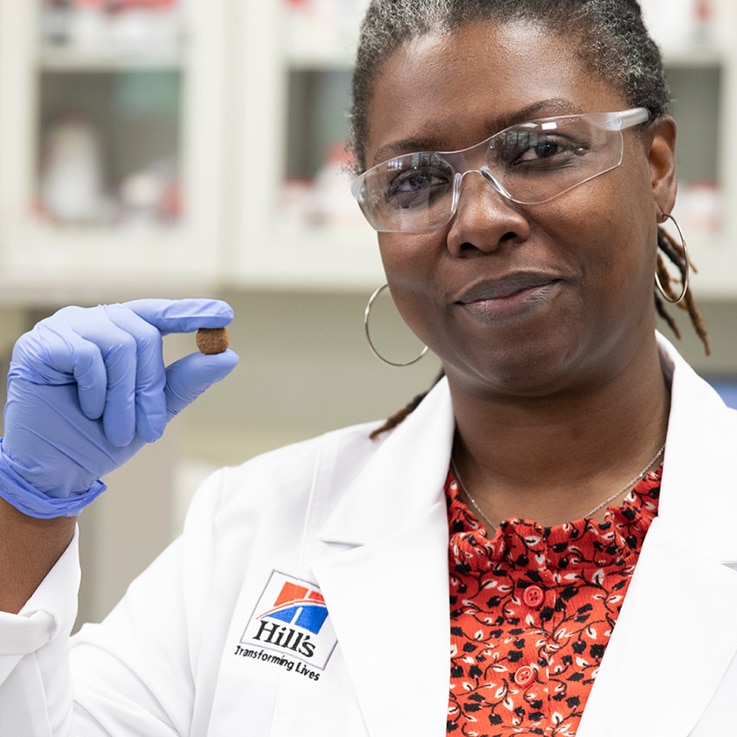
Nutritional support for restorative care
Maintaining a pet’s nutrition can be a big factor in the fight against illness. Your vet is the best resource for a recommendation, but the best foods typically support some key dietetic goals:



What options might be available for your dog with cancer?
Supportive Medication
Your veterinarian may prescribe medication to help your dog with related health issues, such as digestive care, pain management, etc.
Treatment
Depending on your veterinarian’s recommendation, supportive medication, radiation, surgery, and other treatment for dogs may be considered.
Love & Care
Whether it’s a road trip, a walk in the park or snuggling on the couch, your pet’s best friend in this fight is you.
What options might be available for your dog with cancer?
Supportive Medication
Your veterinarian may prescribe medication to help your dog with related health issues, such as digestive care, pain management, etc.
Treatment
Depending on your veterinarian’s recommendation, supportive medication, radiation, surgery, and other treatment for dogs may be considered.
Love & Care
Whether it’s a road trip, a walk in the park or snuggling on the couch, your pet’s best friend in this fight is you.
Tips & resources for handling your dog’s diagnosis
Rally Support
You will need support from family, friends, and of course, your vet.
Do Your Research
Learn all you can about your dog's diagnosis so you can be an advocate for the best care. Your vet and Veterinary Nurse are your most reliable resource.
Consult With an Expert
A vet that specialises in your dog’s disease can give the best care. Ask your vet for a referral to a local veterinary specialist.
Assess Your Dog's Quality of Life
If your dog’s condition is terminal, it can help to understand and assess their quality of life. Lap of Love has a quality-of-life assessment tool.
Tips & resources for handling your dog’s diagnosis
Rally Support
You will need support from family, friends, and of course, your vet.
Do Your Research
Learn all you can about your dog's diagnosis so you can be an advocate for the best care. Your vet and Veterinary Nurse are your most reliable resource.
Consult With an Expert
A vet that specialises in your dog’s disease can give the best care. Ask your vet for a referral to a local veterinary specialist.
Assess Your Dog's Quality of Life
If your dog’s condition is terminal, it can help to understand and assess their quality of life. Lap of Love has a quality-of-life assessment tool.
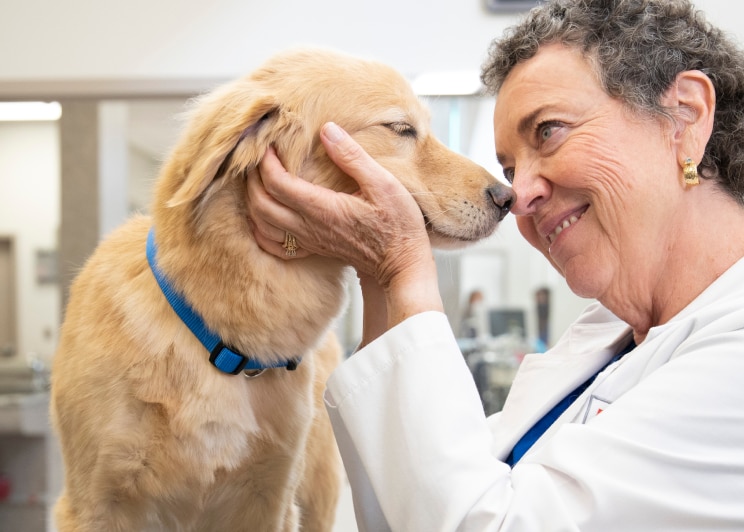

Questions to ask your veterinary healthcare team
Here are some useful things to ask during your next vet visit:





Contact your vet if you have any questions related to restorative care.
More products
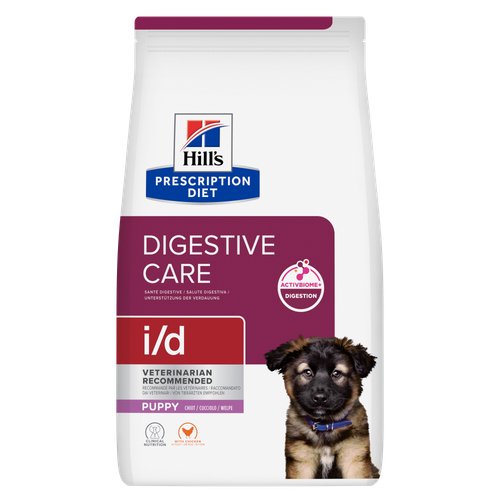
Hill's Prescription Diet i/d Puppy Dry Dog Food with Chicken is highly digestible nutrition formulated to nourish the gut microbiome and help reduce digestive upsets. Fortified with Hill's ActivBiome+ Digestion, a proprietary blend of prebiotics, clinically shown to rapidly nourish the gut microbiome to support digestive health and well-being.
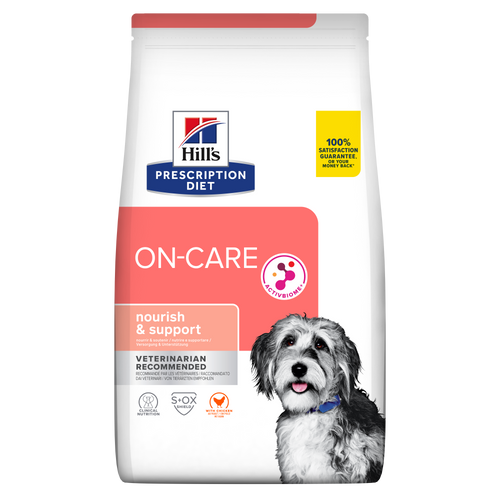
Complete dog food designed to nourish and support dogs needing extra nutritional support for quality of life
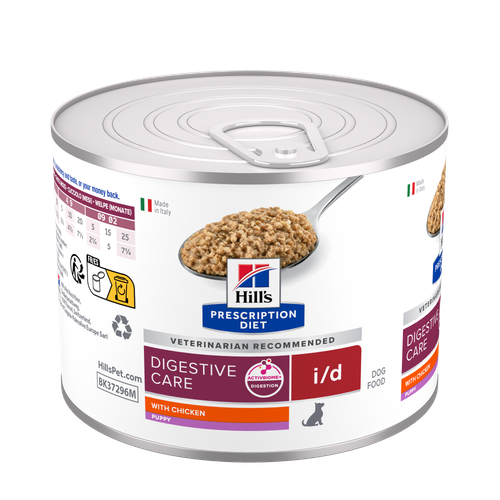
Hill's Prescription Diet i/d Puppy Food is highly digestible nutrition formulated to nourish the gut microbiome and help reduce digestive upsets. Fortified with Hill's ActivBiome+ Digestion, a proprietary blend of prebiotics, clinically shown to rapidly nourish the gut microbiome to support digestive health and well-being.
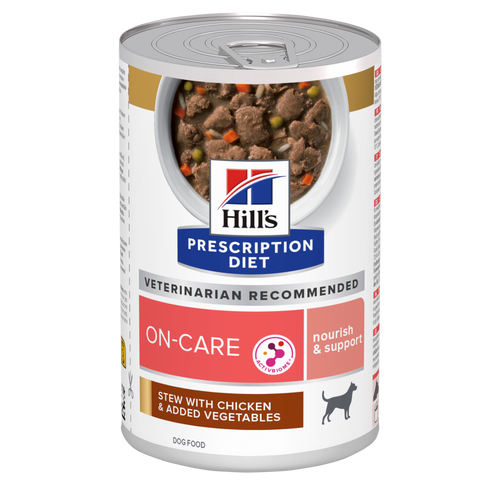
Clinical nurition designed to nourish and support dogs needing extra nutritional support for quality of life
Related articles

Learn about dog food allergies, including their symptoms and treatments. Discover more insights and care tips at Hill's Pet.

Avoiding joint problem flare-ups can be as easy as A-B-C!

Did you know that an obese pet is defined as being 15% or more over its ideal weight? That translates into a mere 330 grams for a tiny dog like a Chihuahua, but over 7.5 kilograms for a Rottweiler.

Learn about the top digestive & gastrointestinal problems in dogs, such as diarrhoea & malabsorption, and find out how you can help your pet feel better.

